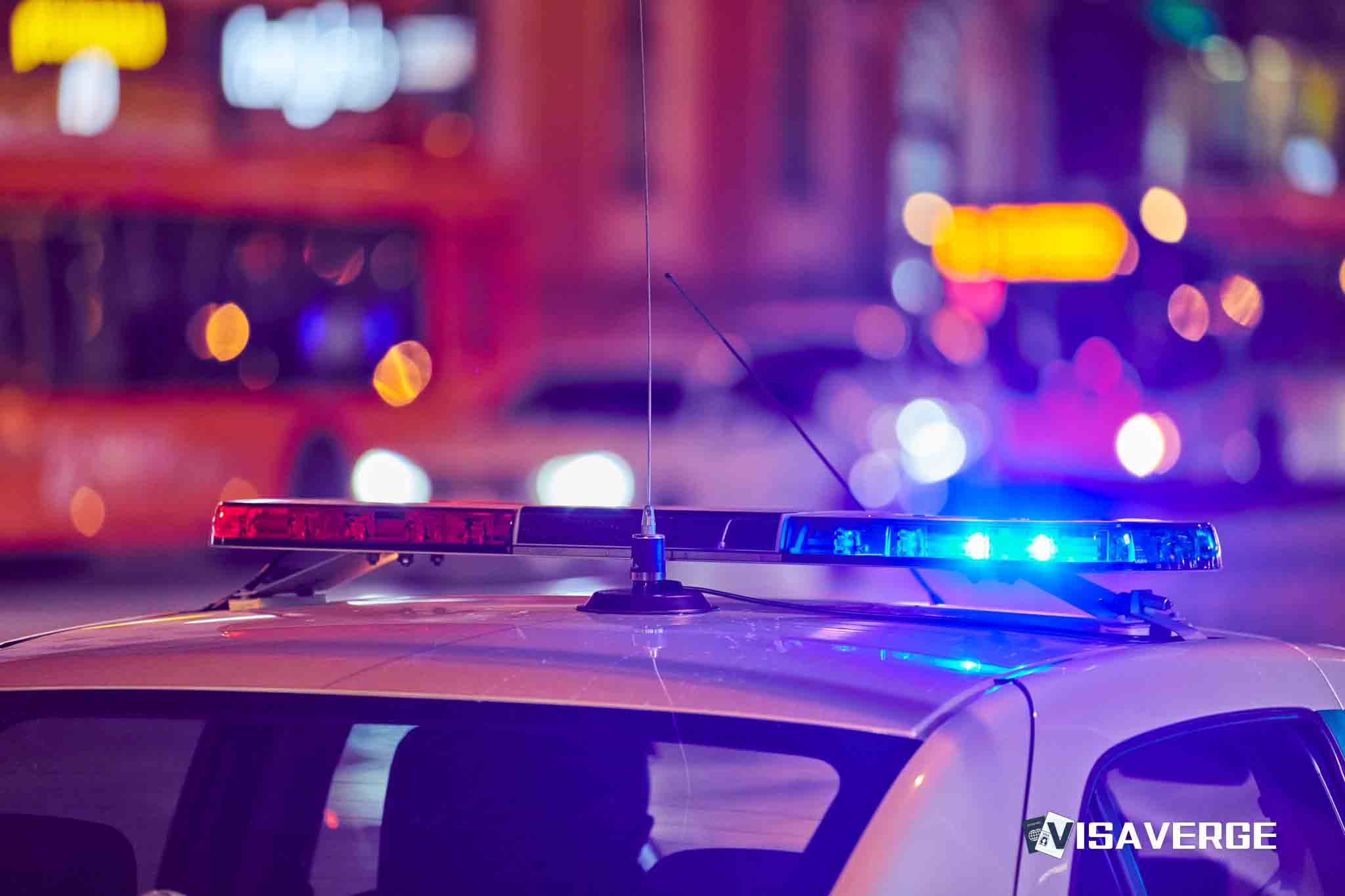(NETHERLANDS) The Netherlands has stepped up internal border checks along its frontiers with Germany and Belgium, returning hundreds of people and recording dozens of asylum claims at roadside checkpoints since late last year. Between December 2024 and September 2025, the Dutch border police said they denied entry to 470 foreign nationals at land crossings and handed hundreds more to neighboring authorities, as the government extended the controls until at least June 2026. The policy targets irregular migration and aims to reduce pressure on the country’s strained asylum reception system.
Key figures and operational outcomes

- 470 people were refused entry by Dutch officers at the border.
- 490 people were transferred to German authorities.
- 60 people were transferred to Belgian authorities.
- 80 people requested asylum at the checkpoints.
- 230 arrests were made for offenses tied to document fraud, human trafficking, and drug-related crimes.
These figures reflect the multiple aims of the checks: denying entry where appropriate, coordinating transfers with neighboring states, processing on-the-spot asylum requests, and targeting criminal activity linked to cross-border movement.
How asylum requests at checkpoints are handled
The asylum claims recorded at the border represent a narrow but important stream of people who arrive at the checkpoints and ask for protection.
- Authorities say the 80 claims were made at the time of control and are processed under national procedures.
- Officers must assess identity and travel routes during stops, while also allowing anyone who states a fear of return to begin an asylum claim.
- This dual role—enforcement plus protection—shapes how checks operate in practice.
Even during tighter border checks, those seeking protection can still ask for it.
Broader enforcement and criminal policing
Enforcement actions extend beyond migration status. Over the same period, police arrested 230 people for crimes often linked to cross-border movement, such as:
- document fraud
- human trafficking
- drug-related offenses
While these arrests are limited compared with total traffic, they form a core part of the government’s argument that temporary checks are necessary to safeguard public order.
Reception capacity and pressure on the asylum system
The renewed checks occur against a background of strained reception capacity:
- Nearly 90,000 Ukrainian refugees are hosted in the country.
- About 70,000 people are in asylum centers.
Officials warn there is limited room for new arrivals and that any spike can push shelters beyond capacity. This pressure influences policy: internal border checks are framed as a practical tool to manage daily intake while longer-term solutions are developed.
Backlogs, recognition rates, and waiting times
The Netherlands has a relatively high asylum recognition rate in Europe but also long waiting times:
- Many applicants reportedly wait more than two years for a decision.
- Long processing times keep people in reception centers, reducing the ability to take in new arrivals.
- Authorities argue that reducing irregular entries, even modestly, can help ease the pipeline while processing improvements continue.
Political rationale and EU context
Ministers point to several reasons for keeping checks in place:
- irregular migration flows
- people-smuggling networks
- limits and delays in the EU’s Dublin system
The government says checks will remain until the EU Migration Pact is in place and working—aiming to streamline procedures across the bloc and avoid backlogs that spill across national borders.
Daily effects on travelers and coordination with neighbors
Daily travel continues but with changes:
- Drivers on routes to Germany and Belgium report occasional stops, identity checks, and questions about the purpose of travel.
- The Dutch border police describe the controls as targeted, mobile checks rather than a full border closure.
- Coordination with German and Belgian authorities includes operational handovers of people who lack the right to enter the Netherlands or are better handled by the neighboring state.
For travelers seeking general guidance on Schengen border controls, see the Dutch government’s guidance: https://www.government.nl/topics/border-control.
Transfers versus deportations
The handovers of 490 people to Germany and 60 to Belgium:
- Are not deportations; they are operational transfers.
- Reflect cooperation when a person lacks the right to enter the Netherlands or is appropriately managed by the neighboring state.
- Functionally make the checkpoints a sorting point: immediate refusals, potential criminal cases, and those who state an asylum claim.
Political debate and outlook
The numbers—470 refused entry, 80 asylum requests, 230 arrests—are politically sensitive. Positions include:
- Supporters: argue checks deter smugglers, steer people needing protection into clearer procedures, and ease pressure on reception.
- Critics: warn prolonged internal checks in Schengen risk delays and send mixed signals to lawful travelers.
Analysis by VisaVerge.com notes the extension to June 2026 aligns with a government strategy to balance humanitarian duties with the practical limits of shelter space and staff in the asylum system.
What lies ahead
- The Dutch border police will keep mobile units on major routes, continuing stops and identity checks.
- Reception centers will manage tight capacity while caseworkers work through a backlog measured in years.
- The extension to June 2026 signals that these controls are likely to remain part of the policy toolkit until longer-term EU or national reforms reduce systemic pressure.
The government’s stated aim: use short-term enforcement measures to buy time for structural change while maintaining space for genuine asylum claims.
This Article in a Nutshell
From December 2024 to September 2025 the Netherlands enforced mobile border checks at land crossings with Germany and Belgium, refusing entry to 470 people, transferring 490 to Germany and 60 to Belgium, and registering 80 asylum claims at checkpoints. The measures also produced 230 arrests for crimes linked to cross-border movement. Officials say checks aim to reduce irregular migration and relieve overstretched reception centres amid nearly 90,000 Ukrainian refugees and about 70,000 people in asylum facilities, with controls extended to June 2026 pending EU reforms.













